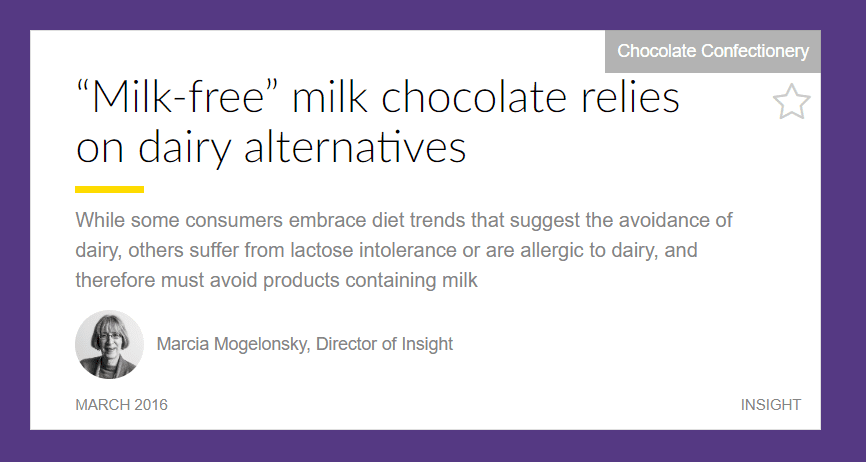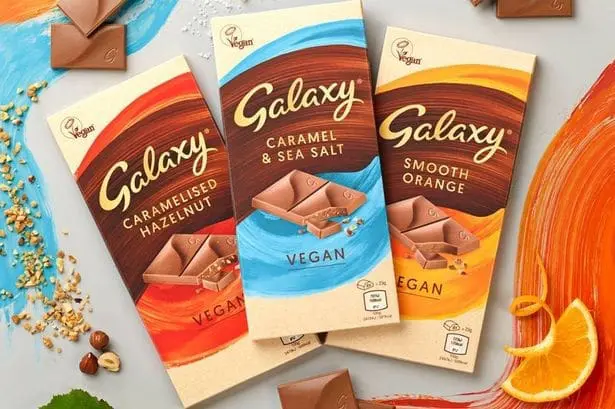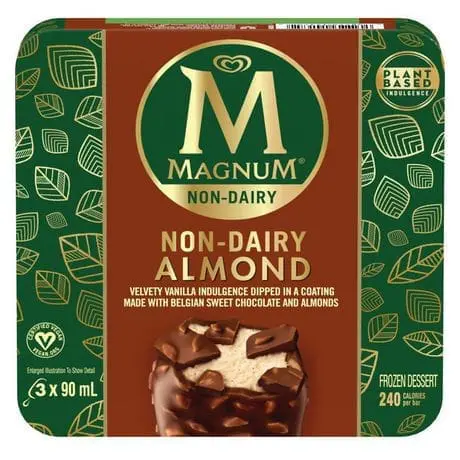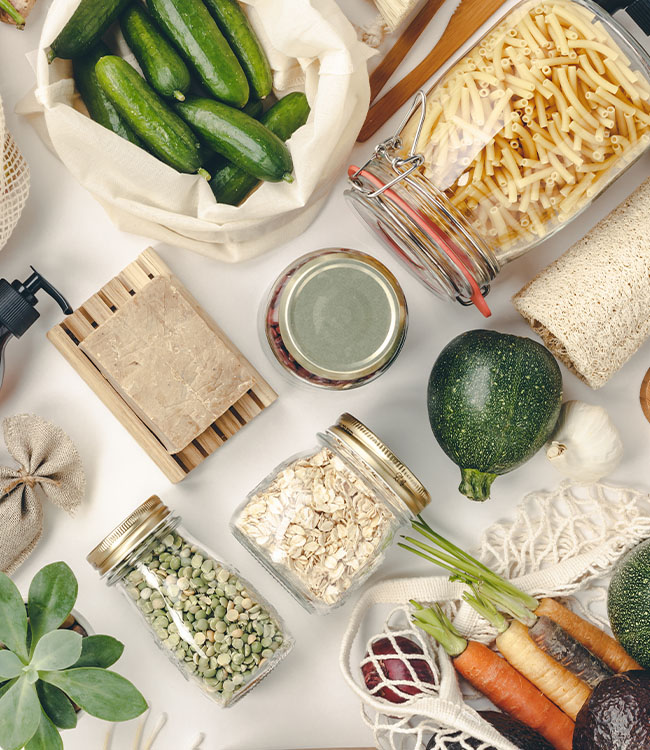Vegan chocolate moves from margins to mainstream
Mars has just launched a line of vegan milk chocolate bars under its Galaxy brand, heralding the company’s first foray into non-dairy milk chocolate. This transition has garnered considerable headlines, as Mars is the first major UK confectionery company to offer a vegan alternative to dairy milk-based confectionery. Mintel has been following the growth of vegan chocolate confectionery since 2016, when we suggested that such products had a limited but growing audience among those wanting to avoid dairy products for ethical or health reasons.
Vegan chocolate is a ‘thing’
As interest in the vegan diet grows, chocolate manufacturers have been pointing out their non-dairy confectionery products. But, in fact, many such products have always been vegan: the majority of dark chocolate currently on the market, for example, is naturally dairy-free and is worthy of such a label. The big change in formulation is the transition from dairy to non-dairy milk in products labeled as ‘milk chocolate’. These products, typically called ‘mylk’ or ‘non-dairy milk’, account for only a very small segment of the market.
According to Mintel Global New Products Database (GNPD), between December 2015 and November 2018, only 5% of global chocolate launches made a vegan claim, and a good percent of these are products that never contained dairy ingredients. Far fewer are the products that use non-dairy milk as an ingredient.
 The new Galaxy vegan range
The new Galaxy vegan range
UK consumers are wedded to milk chocolate
More than eight in 10 UK chocolate eaters choose milk chocolate, almost twice as many as those who reach for dark or white versions – according to Mintel research on chocolate confectionery in the UK. Galaxy is gambling on the new reality of a ‘dairy-free world’ and anticipating that milk chocolate eaters would like a chance to take their chocolate along for the ride.
At the same time, almost a quarter of UK consumers drink non-dairy milk, but are they willing to follow that idea through and replace the dairy in their milk chocolate? One way to gauge their commitment to non-dairy milk chocolate may be to consider the ways in which they consume non-dairy milk. The main uses of non-dairy milk are in hot drinks, on cereal and in oatmeal. Using it as an ingredient ranks considerably far behind. This suggests that they are not anxious to transition away from dairy as an ingredient in finished products – which may hold back Galaxy’s success.
Magnum ice cream faces a similar conundrum with its vegan ice cream, launched in 2018. Only a tenth of ice cream eaters choose non-dairy versions, suggesting there is a lot of work to do to make vegan options more popular. More telling is the fact that most UK ice cream eaters say they eat too little ice cream to worry about its healthiness. If health is not a motivator, then vegan ice cream must depend on other factors, such as commitment to a vegan lifestyle or the belief that such a switch helps with sustainability, to gain in popularity.
Can it compete on taste and price?
Galaxy’s vegan chocolate bars must compete on taste, and that could be a stumbling block for its success. Almost all chocolate eaters consider taste to be the most important factor for chocolate. And Galaxy eaters like its taste: indeed, 42% of them describe it as ‘delicious’. If its taste is perceived to have changed with the replacement of dairy milk, then chocolate eaters who consider it to be their favorite brand and those who prefer it over others, may stick to the original Galaxy or may look for another brand.
Price may be the other hurdle: the dairy-free Galaxy products are double the price of the regular bar (£3 for a 100g bar). While ‘going vegan’ is a popular path to follow right now, if the flavor and price can’t stand up to scrutiny, the product will not move beyond a novelty brand or one for the die-hard non-dairy user.

Marcia Mogelonsky, Ph. D. is the Director of Insight, Food & Drink, at Mintel. Her expertise focuses on consumer behavior across a range of categories.
-
Chocolate Confectionery in the UKWhat are the latest trends and innovations?...
-
2026 Global PredictionsOur Predictions go beyond traditional trend analysis. Download to get the predictive intelligence and strategic framework to shape the future of your industry in 2026 and beyond. ...Download now
-
Are you after more tailored solutions to help drive Consumer Demand, Market Expansion or Innovation Strategy?Ask for a customised strategic solution from Mintel Consulting today....Find out more

 The new Galaxy vegan range
The new Galaxy vegan range
































